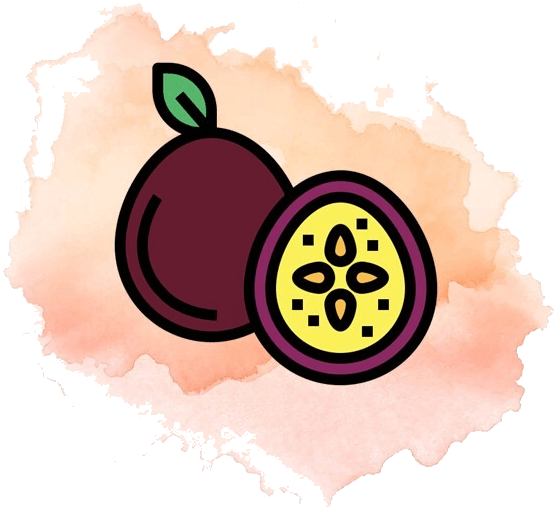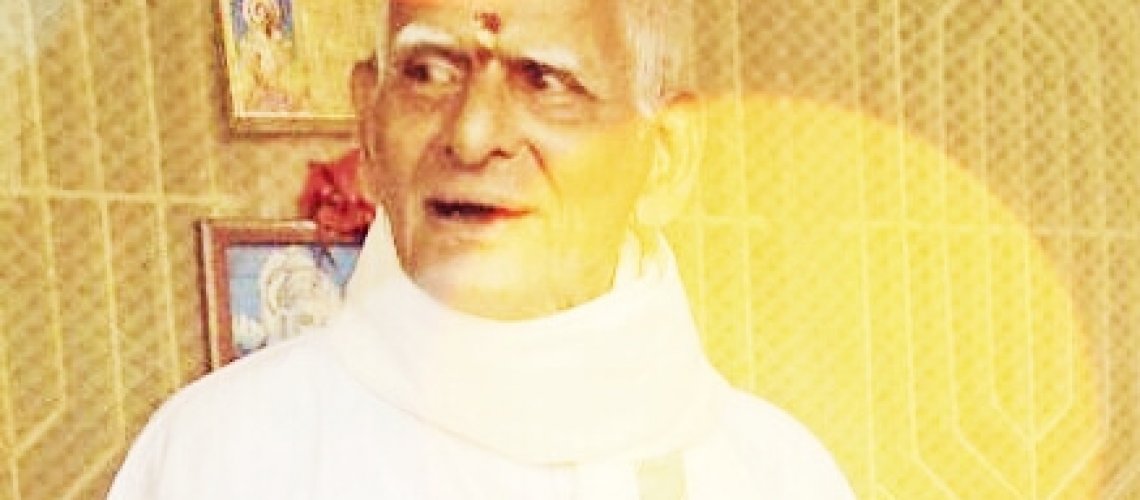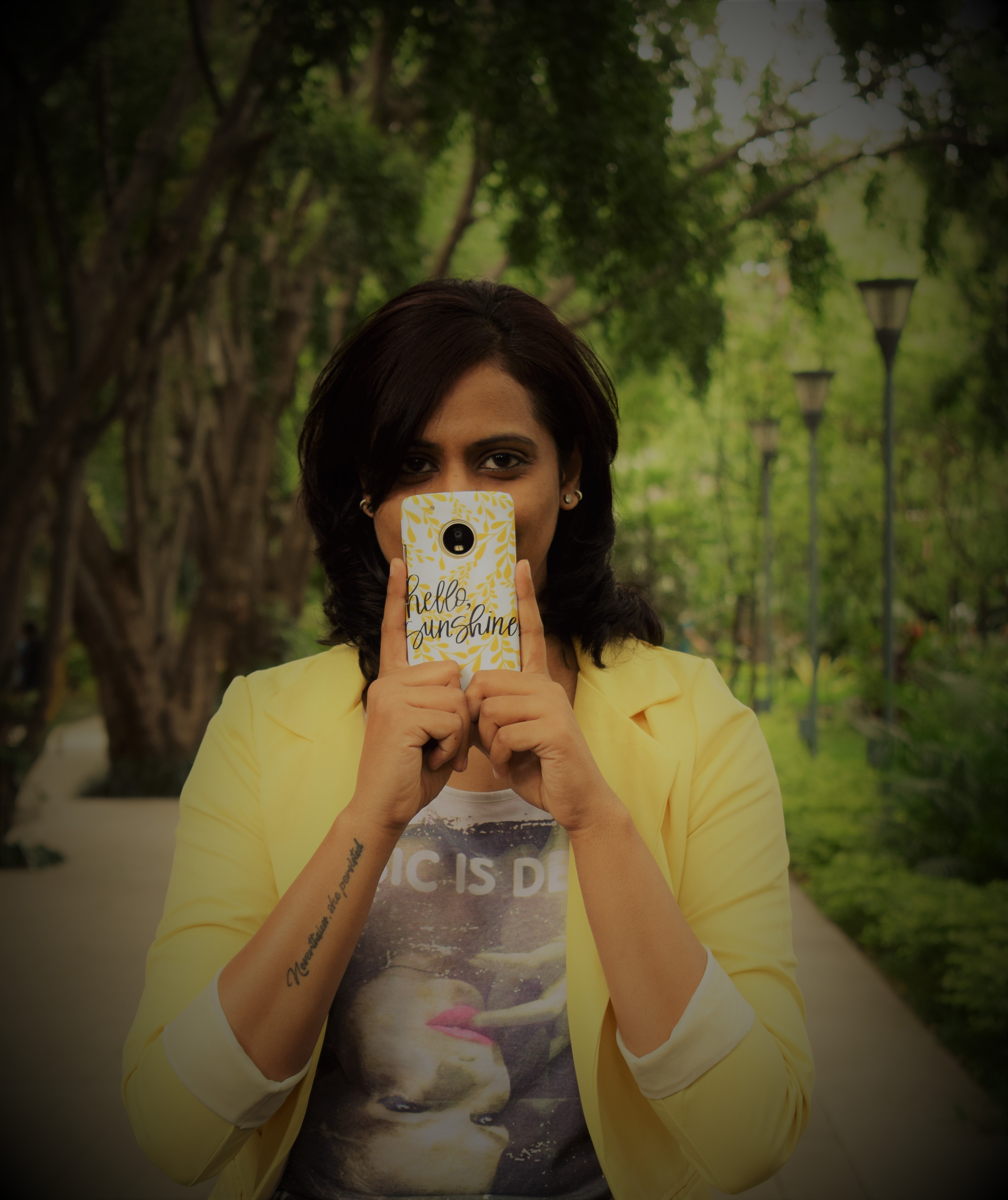THE PASSION PROJECT : PART VI | D S Sastry
As far as I can retreat to retrieve into depths of my mature mind, there has always been this one obsessive idea that has propelled me through my professional life – “Why work doesn’t feel like work for some people?”. Some people seem to breeze through the weekdays, hardly waiting for the weekend to come and when it does, they simply carry on working, oblivious of the calendar constraints. Monday morning blues is not a relevant thing for them. They get up every day rejuvenated with a sense of excitement for the day ahead and what they are about to achieve. These are of course people who have found their passion in life that is now leading them purposefully in whatever they do. And yet, as we have these real-life examples strutting around, it seems like an almost-alien concept that doing something you love, professionally, is even a remote possibility. It’s just a myth they say, something out of a fantasy film they feel. “Nobody is that happy with their job”. But that is exactly the point. For these people, what they do isn’t a mere job, it is the joy of their existence. I have stumbled through life, trying to find that joy for myself. And while I still may be an amateur, I thought to seek out the experts who may help shed some light to find what we all are looking for. This series encapsulates those people who have not only found their passion but are living it. And I hope their stories will inspire you to live your purpose too.
……………………………………………..
“Strength does not come from physical capacity. It comes from indomitable will.”
– Mahatma Gandhi
“When you close your eyes, what do you see?”, he asked me quietly. I tried to focus my bewildered brain and obey his orders. I closed my eyes and all I could think of the was the delicious meal I had just eaten. Mom had made her special curry and we had ice cream afterwards, it was the perfect Sunday lunch. Almost too perfect as it progressed to make me increasingly drowsy and closing one’s eyes in such a situation meant danger of actually dozing off. I snapped my eyes back open again before I could get a wigging for my wayside manners. “Umm, nothing Tataji”, I muttered yearning to complete the conversation soon and return to my bed with its soft pillow, warm blanket, and promise of a good afternoon nap. He paused and sized me up, probably wondering if I was up for what he was about to download onto me. I must have passed the test, or he would have decided that I anyway needed to be shaken into shape, for he did enlighten me with what I should see when I close my eyes. “When you close your eyes, you should be able to see this blinding light, the all-consuming aura which we call Shakti. She is what drives all the three worlds – the physical or earthly state, the causal or omniscient state, and astral or the beyond body state. That power of the cosmos is what resides within you, guiding you to see right from wrong, directing your thoughts and actions, making you question your existence. Making you question everyday your purpose on this planet.”
I stood there gaping. I didn’t know what was more staggering – that this dialogue was taking place between my seventy-eight-year-old elderly grandfather and my teeny fourteen-year-old self or that I was actually hooked onto every word even though I had hardly formed any mature brain cells of my own, as evidence by my curry and ice cream daydreams. But that was what made Tataji, Tataji.
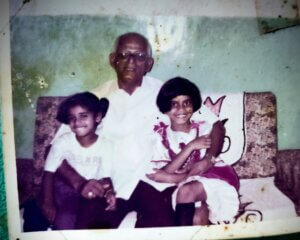
My grandfather was born and brought up in the late 1920’s. It was when everything was black and white, including misty photographs, mandates, and morals. There was no question to question anything. No buts and no what ifs. No greys. You just obey the instructions which was what parenting was in most parts back then and hope to end up liking the path that others have chosen for you. Tataji grew up in such a household. He was whisked away by a relative after his father passed away, lamenting that he had yet not made something of himself, thrown into an entirely different world to fend off. But he soon acclimated to the arduous circumstances and changed his narrative. He passed his matriculation with flying colors, did his Bachelor’s in Arts, and then went ahead and did Master’s in Political Science too. I still remember him telling me that story in his baritone. “In those days, people like us who came from humble backgrounds were discouraged from education. They said that there was no way a simple lad like me could pass the examination for master’s degree. I just simply listened to them, nodded in general agreement, and then went to buy every single book I could get my hands on for the exam. I studied Shakespeare and Aristotle, I learnt about geography and gender, I read in realities and hypotheses. I locked myself away in a room to ensure I had no distraction and channeled all my discipline into the dedication of education. I read through mornings and nights. And on the day of when I finally got up from my study table, it was just two hours to the examination. My head was buzzing with the books that I had stacked into my mind library and I could feel my body tremble under the weight of the knowledge that I had managed to gain. For a moment I just couldn’t bring myself back out from the book. So, I just went and sloshed 3 buckets of water on my head as a way to slap my brain and body out of the data coma.”
He went on to write the examination which was an essay paper on the topic of your choice from the ones listed. He told me how he scanned through all of them and chose the most difficult one back then – a diagnosis of the Indian constitution as a comparison with other world constitutions. The only reason I remember this complicated title is because how awestruck I was by it. He had apparently sat motionless for the first half hour of the exam, mentally moving the draft in his mind, plucking points from the different bodies of work he had read. The supervisor had tried to nudge him out of concern, but he had abruptly told them, “Do not disturb me, I am preparing. But when I will be ready, you better be too. And when I was done organizing my thoughts, then came the race. Not the race against time but race against my mind. The words poured out of my mind and my hand tried to keep up with them. I filled sheaves after sheaves of paper, asking the supervisor for more after every turn until he thrust down a whole bunch in front of me in frustration. I came out of that exam hall with a satisfaction that I had done justice to the choice I had made.” Tataji of course passed that examination but he didn’t top it. This was still an era ago remember, so marks were given more by preference than merit. But he negotiated his terms of passing. He made sure that he got the tag of first class even if they couldn’t give him the top rank, something which that particular university rarely did. He made sure that he fought for what was right.
And I think that is in parts what motivated most of his succeeding days. His passion for discipline, integrity, and perfection. He was hired as a manager in at Central Tobacco Research Institute in Rajahmundry for which we he was tasked with a turnover of the department. Not only did he accomplish that mammoth task, but he actually was also able to negotiate 113 new job postings to be given to the company every year out of the 150 reserved for the organization all over India. To this day, the beneficiary of those posts revere him and when he was in the vicinity of the factory and its township, they hailed upon him in adoration. But he did all this without the seduction of self-interest. When we were young and he had told us this story very many times, a small squeaky voice in my head used to think ‘Okay Tataji, we get it! You were amazing! Insert rolling eyes.’ But as I have matured and entered the corporate myself, I now understand what he meant better. I don’t remember the story as ‘I gave people jobs and they loved me’ or that ‘I gave people jobs and I got promoted’. In fact, I don’t remember anything apart from that number – 113. Because that is what he pressed on. Because that is what he wanted to us to understand, how much impact we can create for others no matter which level we were at. Even when I was joining my first job, he had called me to tell “You are now going to work for someone who will give you the money to survive and respect to keep your head held high. Make sure you pay that debt back to the organization every single day. And make sure that you always think of the people below you more than the ones above you, because they are the ones making you look good before others.”
The austere authority of Tataji was felt not only by me but by everyone that he came in contact with. At almost 6 feet in height and strikingly similar to a body builder in weight, he was a sight to behold in those days I am told. But more than his personality, his passion shone through the most. You could feel the air change whenever he entered any room, and he commanded the respect that he deserved. Even after his retirement when he had left his job and his fuller frame behind, he still never seemed fragile. He had become much leaner but had retained his strength and ferocity. He used to stride into our room quietly, his hands held behind his back, towering over us and the comics that we were binging. He seemed so tall, like a lighthouse, while directing us to throw away those futile books and handing instead Jane Austen and Charles Dickens. A lot of my literary leanings came from him I believe. He was also a part-time playwright and had written hundreds of plays through his lifetime before they were woefully washed away in the frequent floods that used to regularly engulf most of the East Godavari coast where he had lived and raised my mother’s family. I think that is what made him a little softer around the straight edges that he had. That and marrying my grandmother. Because that started a completely new chapter in his life of channeling his passion from reality to spirituality.
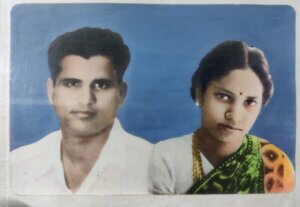
My grandmother was a magical woman to say the least and while her story deserves its own title, her mention is required here because she is the one who turned my grandfather into the guru that he had become in the later years of his life. Once he had depleted his earthly endeavors, she tapped into his spiritual one. She guided him on this path of sensitivity and self-awareness. While she had mastered that path through experience, Tataji approached that path like an apprentice. He hit the books again and studied everything he could about what it all meant – life, existence, relationships. Others had beach and farmhouses to go to in summers, but we went to this tiled traditional South Indian house that was packed between a fish market and the town slum on a narrow winding lane. But it was like entering a new dimension when you took a step inside. Every inch of the front room was covered in portraits of Gods and dutiful sayings. The portraits were far from the religious bigotry as they borrowed from a spectrum of Hinduism, Buddhism and Christianity, while the sayings were mined by my grandfather from his spiritual education. And through all this, you could see Tataji sitting on his cot and reading more verses from his closely guarded books, his head bent down in attention and adoration. He had given up almost everything in his search for the Supreme like his love for food, need for travel, desire over worldly matters. His days were now dedicated to taking care of his body which could supply his brain food for thought, which could in turn help him stay connected to God in his journey.

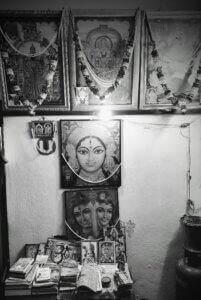
On the other hand, his steady passion for excellence now branched out to help people excel in whatever way they could – monetarily, emotionally, or spiritually. It was like he was in this phase of life where he was receiving the infinite wisdom from the universe and acting as a channel to pass it on to us mere mortals. So unlike other grandparents of that generation who might be a tad bit more concerned towards the salary of their grandson or marriage of their granddaughter, Tataji held us to higher standards. What this meant was that instead of listening to him telling my parents to save money for my and my sister’s dowry, he would ask them to invest in our education. It meant making his daughters and granddaughters tougher, and his sons and grandsons softer. It meant telling a fourteen-year-old about the secrets of the universe because he wanted his lineage to be humbled by the sheer larger-than-life purpose of all our existence. I have come long way from that befuddled teenager to becoming a grown woman now and appreciate his discourses much better. I understand the finer intricacies of what he was trying to tell us. The subtext of his textbook worthy teachings. In many ways, he had mastered all the three worlds that he had always taught us about. The hard worker and home maker in him had lived the best of the physical world. The experienced elder in him had contemplated through the causal world. And now the sage in him had ascended to the astral world.
Tataji passed away peacefully a few months back. I felt like he had argued with God to be relieved of his long journey and give him what he deserved, just like with that Master’s degree. He had negotiated his terms of passing. It hurts sometimes that he will never again give me a new book to read or call upon me to put me on the right path, but I know he is in a better place. Sometimes I still close my eyes and can almost hear him ask me ‘What do you see when you close your eyes?’. And I see him. I see Tataji, happy where he is.
This is first in the series of The Passion Project. To know more about the author and the origination of this series, read here.
